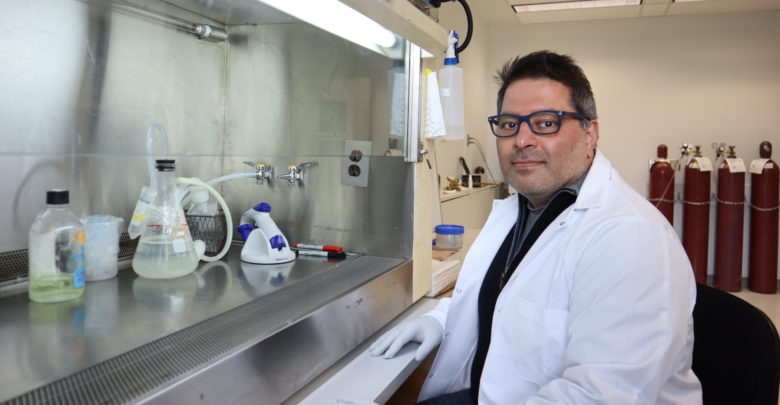 Mitchell Pawluk
Mitchell PawlukA recent University of Alberta study identified a genetic variant that contributes to the risk of hearing loss in children treated with the cancer drug cisplatin.
Amit Bhavsar, assistant professor in the department of medical microbiology and immunology, took part in an international effort researching a genetic contribution to children developing hearing loss after being treated with cisplatin. According to Bhavsar the team looked at almost one million genomic sequences — and found one that caught their attention.
“There was this really intriguing [genetic variant] called TCERG1L, which is a transcriptional regulator,” Bhavsar said. “We don’t really know a lot about it yet, but the key point is that it had never been associated with cisplatin-induced hearing loss before. It certainly was a new genetic direction to go in.”
Bhavsar’s team found an association between the TCERG1L variant and hearing loss in children being treated with cisplatin. According to Bhavsar, this association is important for two main reasons.
Since TCERG1L is a transcriptional regulator protein, this would suggest TCERG1L controls the expression of many other genes. Bhavsar described his team as intrigued by the genes TCERG1L has control over.
“It’s likely that one of these genes [TCERG1L] controls actually plays a really important role in cisplatin-induced hearing loss,” he explained. “We’d be really interested in trying to understand more about the family of genes controlled by TCERG1L.”
Secondly, this study could help prevent cisplatin-induced hearing loss. Knowing children carrying the TCERG1L genetic variant have an increased odds of developing cisplatin-induced hearing loss by about threefold can prompt clinicians to test children for TCERG1L before treating them with cisplatin.
“What that allows you to do, given how advanced genomics is now, is you can actually make a test that’s painless… that would let a clinician know whether this child they want to treat [with cisplatin] has the [TCERG1L] variant or not,” Bhavsar said. “If they have this variant, it might help them make a more informed choice as to how they want to treat this patient.”
When looking to the future, Bhavsar described his team as focused on preventing hearing loss induced by cisplatin by treating cancer with co-therapies.
“Cisplatin is a really important chemotherapeutic… it’s really good at killing cancer but you just want to use it safely,” Bhavsar said. “We are aiming to develop co-therapies you can administer at the same time as cisplatin that would specifically protect children from developing hearing loss, so they can still benefit from the drug and the great uses of cisplatin — which is the anti-cancer effect — but they wouldn’t be at risk of developing hearing loss.”




